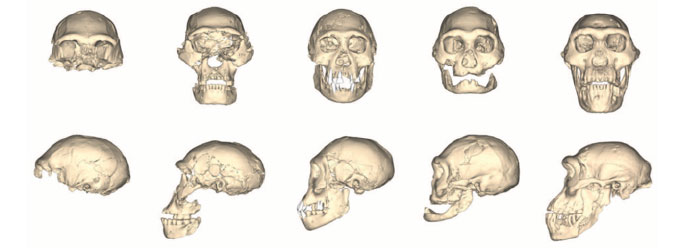The Hadza is a nomadic tribe in Tanzania that subsists by hunting game and gathering wild plants. To evolutionists, they supposedly represent the early, more primitive societies from which modern society evolved. That means their social interaction should be primitive as well—right?
Publishing in Nature, a team led by Harvard anthropologist Coren Apicella studied social behavior among the Hadza. They wrote:
To discover the possibly adaptive origins of human social networks, and their relationship to cooperation, we wanted to examine network features in an evolutionarily relevant setting, that is, in a population whose way of life is thought to resemble that of our early ancestors.1
But the result obtained by Apicella and her team in their study of 205 Hadza was described as "striking," apparently because the complex tribe's society did not match evolution-based expectations of simplicity. In fact, "their networks of social ties look a lot like ours."2
In a "public goods game" that was part of the study, the Hadza cooperated with one another by giving to family and friends highly valued sticks of honey provided by the researchers.1 Such "cooperative behavior—acting in a way that personally costs the individual but benefits others in the group—has always befuddled evolutionary scientists."2
So, Apicella and her colleagues proposed that perhaps ancient cooperative pre-humans excluded the non-cooperators, who then had to cooperate with other non-cooperators in order to survive. The Nature authors wrote, "But regardless of the causal mechanism, homophily [social ties formed between similar people] on cooperation and selective formation of network ties create conditions that would make it easier for cooperative behavior to evolve."1
But this is merely an ad hoc speculation invented to backfill a glaring void in human evolution theory. Even if network ties could "create conditions" that would favor the evolution of cooperative behavior, they cannot explain the origin of that cooperation. Since when do external conditions generate internal capabilities? For example, the mere presence of sunlight did not cause the complicated machinery of photosynthesis any more than it caused the much less complicated machinery of solar panels. Such systems are the result of deliberate planning and design, not external "conditions."
A potential benefit of cooperation between individuals does not account for the existence of cooperation any more than the potential benefit of collecting sunlight energy caused solar panels. Cooperation requires a suite of well-integrated cognitive faculties, such as the recognition of self versus non-self and the capacity for imaginative role-playing and forward-thinking. Where did these originate?
Clearly, people can cooperate because people are fully human, having been created in the image of God. Just as no evidence shows how external conditions can invent solutions, despite the Nature authors' assertion, neither does any evidence show that people have ever been anything other than human right from the start.
References
- Apicella, C. L. et al. 2012. Social networks and cooperation in hunter-gatherers. Nature. 481 (7382): 497-501.
- Landau, E. Remote tribe has social networks like ours. CNN Light Years. Posted on lightyears.blogs.cnn.com January 25, 2012, accessed January 31, 2012.
* Mr. Thomas is Science Writer at the Institute for Creation Research.
Article posted on February 28, 2012.
























